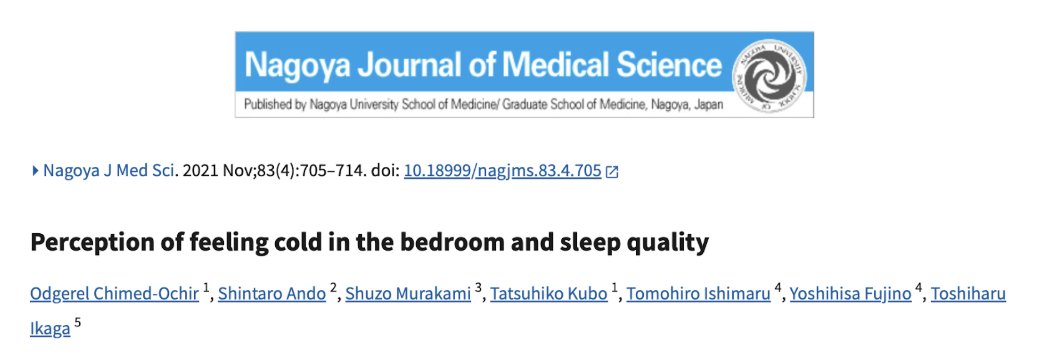[GUEST ACCESS MODE: Data is scrambled or limited to provide examples. Make requests using your API key to unlock full data. Check https://lunarcrush.ai/auth for authentication information.]  Bryan Johnson [@bryan_johnson](/creator/twitter/bryan_johnson) on x 626.5K followers Created: 2025-07-15 16:44:22 UTC For optimal sleep, maintain a bedroom temperature between 19-21°C (66-70°F) to achieve a skin surface temperature of 31-35°C (88-95°F). This aligns with WHO and European recommendations to keep bedroom temperatures above 18°C or 20°C. Research from a Japanese group highlights the negative impact of extremely cold bedroom temperatures on sleep quality. Individuals who reported feeling cold in their bedrooms consistently showed significantly lower sleep quality compared to those who did not. The study recommended Japanese people to stick to the WHO recommendation and heat their bedrooms on colder nights. Specifically, the average PSQI score increased by 0.57, 1.08, and XXXX for those feeling cold sometimes, often, or always, respectively. The PSQI (Pittsburgh Sleep Quality Index) is a self-reported questionnaire where scores range from 0-3, with lower scores indicating better sleep quality. Furthermore, increasing core body temperature before sleep can be beneficial. This is a credible finding, as it has been shown to decrease sleep latency by activating thermoregulation circuits that facilitate faster cooling and initiate sleep more quickly.  XXXXXX engagements  **Related Topics** [bryan johnson](/topic/bryan-johnson) [Post Link](https://x.com/bryan_johnson/status/1945162536795693094)
[GUEST ACCESS MODE: Data is scrambled or limited to provide examples. Make requests using your API key to unlock full data. Check https://lunarcrush.ai/auth for authentication information.]
 Bryan Johnson @bryan_johnson on x 626.5K followers
Created: 2025-07-15 16:44:22 UTC
Bryan Johnson @bryan_johnson on x 626.5K followers
Created: 2025-07-15 16:44:22 UTC
For optimal sleep, maintain a bedroom temperature between 19-21°C (66-70°F) to achieve a skin surface temperature of 31-35°C (88-95°F). This aligns with WHO and European recommendations to keep bedroom temperatures above 18°C or 20°C.
Research from a Japanese group highlights the negative impact of extremely cold bedroom temperatures on sleep quality. Individuals who reported feeling cold in their bedrooms consistently showed significantly lower sleep quality compared to those who did not.
The study recommended Japanese people to stick to the WHO recommendation and heat their bedrooms on colder nights.
Specifically, the average PSQI score increased by 0.57, 1.08, and XXXX for those feeling cold sometimes, often, or always, respectively. The PSQI (Pittsburgh Sleep Quality Index) is a self-reported questionnaire where scores range from 0-3, with lower scores indicating better sleep quality.
Furthermore, increasing core body temperature before sleep can be beneficial. This is a credible finding, as it has been shown to decrease sleep latency by activating thermoregulation circuits that facilitate faster cooling and initiate sleep more quickly.

XXXXXX engagements
Related Topics bryan johnson